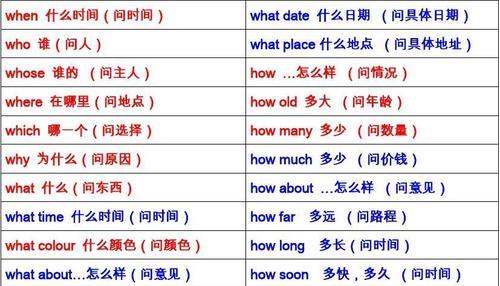在英语中,特殊疑问词后的动词形式通常应为原形,但在“do”或“does”构成的疑问句中,动词应使用基本形式。如果特殊疑问词后的动词是be动词,应根据主语的单复数和人称来使用相应的be动词形式。

特殊疑问词包括:what、when、where、who、whom、whose、why和how。这些词通常在句子的开头,用于询问某些信息。当这些词后跟动词时,需要注意使用什么形式。
在大多数情况下,特殊疑问词后面的动词应该使用原形。例如:
- What do you like to eat?
- When does the train leave?
- Where do you live?
- Who is your favorite singer?
- Whom did you invite to the party?
- Whose book is this?
- Why do you always arrive late?
- How do you make a cake?
但是,当特殊疑问词“do”或“does”用于构成疑问句时,后面的动词需要使用基本形式。例如:
- What do you do for a living?
- When does the movie start?
- Where does he live?
- Who does she work for?
- Whom does he love?
- Why do they always argue?
- How does she speak Chinese?
此外,当特殊疑问词后面的动词是be动词时,需要根据主语的单复数和人称来使用相应的be动词形式。例如:
- What is your name?
- When are they coming?
- Where is the nearest hospital?
- Who is the president?
- Whom are you talking to?
- Why am I always tired?
- How is she feeling?
